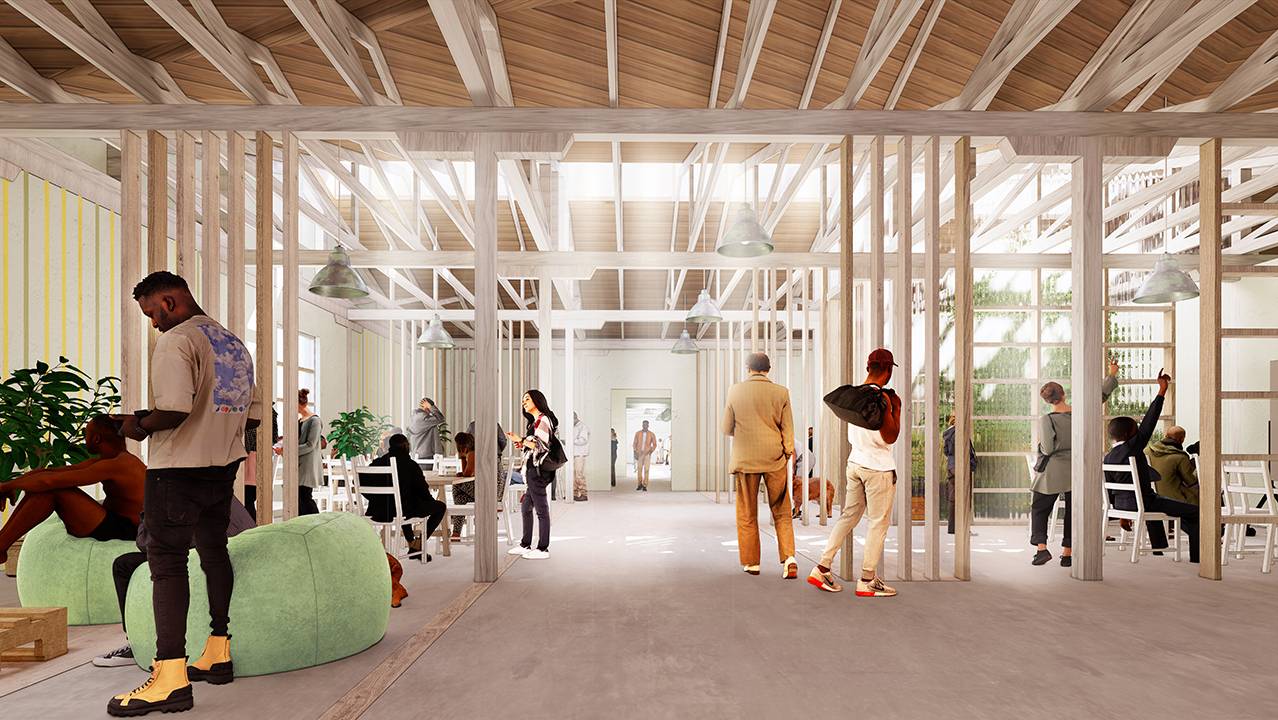Life can be full of unexpected turns. Sometimes, we find ourselves in need of a safe and supportive environment to get back on our feet. That is what’s transitional housing programs are made for.
Transitional housing provides temporary yet stable accommodation coupled with support services. It bridges the gap between homelessness or emergency shelters and permanent housing.
Transitional housing programs offer a crucial lifeline for individuals and families facing homelessness. These programs empower residents to gain stability, develop life skills, and ultimately achieve self-sufficiency.
In this exploration of what’s transitional housing actually is, we embark on a journey to uncover its essence, significance, and profound effects on the lives of individuals and the fabric of communities.
What is Transitional Housing?
Transitional housing programs offer a temporary yet secure environment, allowing individuals to focus on achieving long-term goals. The typical stay can range from 12 to 24 months, depending on individual needs and program requirements. Some programs provide shorter stays for those closer to securing permanent housing, while others offer extended support for individuals requiring more time to address specific challenges.
Length of Stay in Transitional Housing
What’s Transitional housing? It provides a secure bridge between temporary shelter and permanent housing. Stays typically range from 12 to 24 months but are flexible to accommodate individual needs. Residents work with case managers to develop personalized plans for a successful transition.
Reasons for Living in Transitional Housing
Transitional housing offers support during difficult times. Common reasons for program participation include:
- Job Loss: Sudden unemployment can strain housing stability. Programs provide a temporary haven while residents seek new jobs and career services may also be offered.
- Fleeing Abuse: Domestic violence survivors need immediate relocation. Transitional housing offers a safe space to heal and rebuild. Staff can connect residents with specialized support services.
- Eviction: Unexpected evictions leave individuals scrambling for shelter. Transitional housing provides stability during this transition. Housing advocates can explore legal options and tenant rights.
- Personal Crises: Natural disasters, health issues, or other crises can disrupt housing security. Transitional housing provides a supportive environment to navigate these difficulties. Staff can connect residents with relevant community resources.
What Transitional Housing Program’s Target
Transitional housing serves a broad range of individuals and families,
- Veterans: Programs offer specialized support to veterans transitioning back to civilian life, connecting them with VA benefits and other resources.
- Foster Care Youth: Young adults leaving foster care receive crucial guidance and support to build independent living skills.
- Chronically Homeless: Programs with experienced staff help individuals break the cycle of homelessness through targeted support services.
Transitional housing provides a haven for families, ensuring stability for children’s growth and development. Programs may offer childcare or connect families with childcare resources. Staff can also provide parenting education and support services.
Support and Integration
Eligibility and Residents
Transitional housing programs have specific criteria to ensure residents benefit from the services offered. These criteria may vary depending on the program, but often include:
- Income Level: Programs typically target individuals and families within a specific income range, demonstrating a need for temporary housing assistance.
- Commitment to Support: Residents must be willing to actively participate in support services designed to empower them towards self-sufficiency. This might involve attending workshops, meeting with case managers, and actively searching for permanent housing.
- Finding Permanent Housing: Transitional housing is a stepping stone, and residents typically need to have a plan and actively search for permanent housing during their stay.
- Additional Considerations: Some programs may have additional criteria, such as sobriety requirements or age limitations.
Support Services Offered
Transitional housing programs go beyond simply providing shelter. They offer a comprehensive range of support services designed to empower residents to achieve self-sufficiency. Here’s how these services equip residents for success:
- Case Management: Residents are assigned a dedicated case manager who provides guidance, connects them with essential resources, and works with them to develop individualized goals. This personalized approach ensures residents receive the specific support they need.
- Employment Assistance: Programs may offer job training workshops, resume writing assistance, and connections to potential employers. This equips residents with the skills and resources to secure stable employment, a critical step towards financial independence.
- Financial Literacy: Financial literacy workshops equip residents with budgeting skills, debt management strategies, and knowledge about financial resources. This empowers them to make informed financial decisions and achieve long-term financial stability.
- Mental Health and Addiction Services: Programs may offer on-site counseling or connect residents with mental health professionals and addiction recovery resources. Addressing underlying mental health or addiction issues is crucial for overall well-being and a successful transition to permanent housing.
- Educational Opportunities: Residents may be assisted with enrolling in educational programs or receiving GED preparation support. Education opens doors to better employment opportunities and ultimately a brighter future.
- Childcare Services: Programs may offer on-site childcare or connect families with childcare resources in the community. This allows parents to focus on securing employment, attending workshops, and meeting their personal goals without worrying about childcare.
- Life Skills Training: Workshops are offered to develop essential life skills like budgeting, cooking, and conflict resolution. These skills are crucial for independent living and successful integration into the community.
By providing a supportive environment and access to these essential services, transitional housing programs empower residents to overcome challenges and build a brighter future for themselves and their families.
Community Integration and Acceptance
Transitional housing programs play a vital role in supporting individuals and families experiencing homelessness. However, some communities may be concerned about these programs’ impact on their neighborhoods.
Addressing Concerns about Transitional Housing in Neighborhoods
Here’s how we can address common concerns about transitional housing:
- Increased Crime: Studies show no significant correlation between transitional housing and increased crime rates in neighborhoods. These programs can contribute to a safer environment by offering support services and promoting stability for residents.
- Decreased Property Values: Research indicates minimal to no negative impact on property values in areas with transitional housing. Well-maintained programs can enhance a neighborhood’s overall character.
- Negative Impact on Schools: Transitional housing residents are often families with children. These programs can contribute positively to schools by providing a stable environment for children to learn and succeed.
Open communication and education are crucial for addressing concerns and fostering community acceptance. Local organizations can play a vital role in facilitating dialogue and highlighting the positive impact of transitional housing programs.
Importance of Community Support for Transitional Housing Programs
The success of transitional housing programs relies heavily on community support. Here’s how communities can contribute:
- Volunteer Opportunities: Volunteers can provide mentorship, assist with job searches, or organize community events.
- Financial Donations: Financial support helps programs offer essential services and maintain facilities.
- In-Kind Donations: Donating furniture, clothing, or household goods can be invaluable for residents transitioning into permanent housing.
- Advocacy: Community members can advocate for policies that support affordable housing and address the root causes of homelessness.
Communities can create a more inclusive and supportive environment by embracing transitional housing programs and actively supporting them.
Successful Examples of Transitional Housing Integration
Numerous success stories exemplify the positive impact transitional housing can have on communities.
- Revitalize Neighborhoods: Well-maintained transitional housing facilities can contribute to revitalizing under-resourced neighborhoods.
- Reduce Homelessness Rates: Effective programs help individuals and families transition into permanent housing, reducing overall homelessness rates.
- Strengthen Community Bonds: Positive interactions between residents and community members can foster a sense of belonging and acceptance.
By working together, communities and transitional housing programs can create a brighter future for everyone.
FAQs
Que: What is the most effective program for homelessness?
Ans: Housing-Centric Strategies – Demonstrably effective housing-centric approaches encompass federal housing aid, among the most impactful housing-centered initiatives for mitigating homelessness.
Que: What is the purpose of a transitional shelter?
Ans: Transitional Shelter offers temporary housing to homeless families who have exhausted all alternative accommodations. It delivers onsite social work intervention to tackle the multifaceted needs of admitted families/individuals, facilitating the attainment of sustained and secure housing in the long term.
Que: What is the meaning of transitional living?
Ans: Transitional living offers professional assistance, educational opportunities, and a stable residential setting. Typical forms of transitional living encompass transitioning from incarceration or rehabilitation centers for addiction or mental health. Such programs may also focus on addressing homelessness, particularly among youth.
Conclusion
In conclusion, understanding what’s transitional housing unveils its critical role in providing temporary stability and support for individuals and families facing homelessness or housing insecurity. Transitional housing programs empower residents to navigate challenges, develop vital life skills, and ultimately achieve self-sufficiency. However, their success hinges on community support and advocacy.
Join Bhouses in taking action to support transitional housing initiatives in your community. By volunteering your time, making financial contributions, or advocating for policies prioritizing affordable housing, you can help create a more inclusive and compassionate society.
Together, let’s ensure everyone has access to safe, stable housing and the opportunity to build a brighter future.










